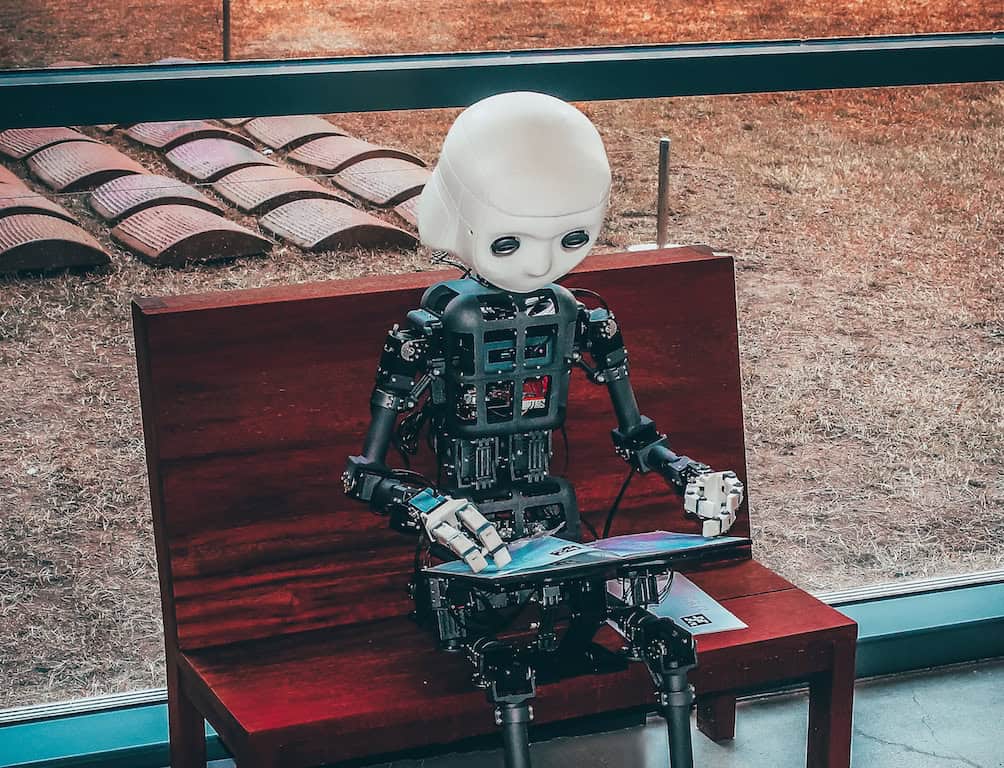Since even before 2001: A Space Odyssey’s Hal, we have seen AI as a source of fear, fascination and wild speculation. However, as with many early sci-fi predictions (flying cars and teleportation?), the reality has been both more mundane and more surprising (do I want even MORE cat videos?).
Within ELT, the story has been much the same. Any new technological tool is endlessly debated, embraced and spurned in equal measure. But a major recent innovation threatens to change the face of education, possibly more than any since the development of the world wide web.
ChatGPT has engendered a storm of debate, excitement and panic in the education world: excitement about the possibilities it opens up; panic about the possibility it could topple teachers and promote plagiarism.
Teachers and students (along with half the world) are already using it extensively and imaginatively, books have been published and courses created. But do we really need to fear it? Or should we embrace it as a new friend and colleague?
At Macmillan Education, we are working on harnessing the power of AI to enhance the teaching and learning experience. As Nik Peachey, author of ChatGPT in the Language Classroom, says “AI is going to have a significant impact on the way languages are taught and learned. Whether that’s a good thing or a bad thing for us depends largely on how willing we are to engage with it and be part of guiding the process”.
Nik will be speaking on this at the AI in ELT workshop, hosted by Macmillan Education in London on September 29.
When I started to write this article, I conducted extensive research. But then I thought, why not ask ChatGPT itself what it has to say on the topic, and test out its potential at the same time? It gave me a lovely, 550-word, 12-point analysis, which succinctly highlighted all the positive ideas I had uncovered myself, and threw in four challenges and considerations for good measure.
However, while fantastically thorough and accurate, it was a bit long-winded for this article (and I felt that I should have at least some input!), so I asked it for a 100-word summary:
ChatGPT has the potential to revolutionize English Language Teaching (ELT) by providing personalized language practice, 24/7 availability, and immediate feedback to learners. It offers writing assistance, exposure to diverse accents, and aids in teacher support. However, it can’t replace human interaction, might contain errors, and risks overreliance. While beneficial for vocabulary expansion and conversational practice, integrating AI into ELT should be balanced with traditional methods to ensure comprehensive language skill development, cultural nuances, and critical thinking.
Not bad, right? So then I decided to try out one of the potential uses for teachers – lesson planning. I asked ChatGPT what topics it thought we should discuss during the Macmillan Education AI in ELT workshop.
It provided a comprehensive breakdown of 15 stages, from introduction to case studies, including cultural and linguistic considerations, ethical and responsible use, evaluating AI tools, pedagogical considerations, and summarised with:
Overall, the workshop should encourage participants to think critically about how AI can enhance language learning while addressing practical considerations, ethical concerns, and the role of educators in this evolving landscape.
I believe that last point is key. The landscape of education is constantly evolving.
Our role as educators is in shaping policy, guiding development and exploring potential, not in trying to deny progress due to existential fear of change. Bill Gates predicted (at the ASU&GSV conference in San Diego this year) that “AI will never replace teachers, but it is going to revolutionise teaching & learning”.
We just need to make sure we are on the right side of that revolution.
About the author: This is a sponsored post by Macmillan Education. Jo Krousso has worked at the chalkface of ELT for over 20 years, as a teacher, trainer, examiner and manager. She is now the Macmillan Education representative for the UK and Ireland. Macmillan Education have a natural interest in the future of ELT and new directions in the industry, and are looking forward to hosting a workshop on AI in ELT, in London on 29th September at Stafford House London, with Nik Peachey, the ELT tech guru.









